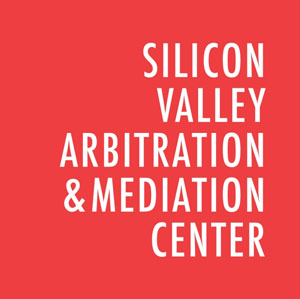Introduction: Tech Mediation, US Arbitration and International Arbitration
In today’s fast paced global business environment, it is inevitable that disputes will arise. ADR offers practical solutions without the cost, time delay, formality and uncertainty involved with going to court. It allows technology disputes to be resolved with efficiency and expertise that cannot be found in a courtroom setting.
Technology ADR can be found in many different forms:
Mediation allows parties to quickly settle disputes without going to court. It is particularly useful when direct negotiations break down. With the right mediator, it can be a tech savvy, constructive, deal-making process.
US arbitration offers focused and practical resolution of disputes on the merits while avoiding the time, expense and uncertainty of court proceedings. It is particularly useful when companies want disputes resolved in a business setting – privately and efficiently by a decision-maker with technology sector expertise.
International arbitration is a specialized form of arbitration designed for cross-border business disputes. It offers technology companies and parties doing business with them a sophisticated, neutral forum to resolve disputes on a global basis.
Mediation is a business negotiation to reach a business resolution of a dispute.
In a mediation, the parties are assisted by a neutral third party, typically called a mediator or conciliator. The mediator assists the parties in reaching a settlement of the dispute.
A mediator provides a structure, a time schedule and communication dynamics that direct negotiations lack. The mediator facilitates negotiation rather than making a binding decision on the merits of the dispute.
A mediator who has legal and business expertise can assist the parties in quickly resolving a dispute by providing a fair, objective and business focused perspective on the dispute and offering suggestions leading to a mutually acceptable resolution. Mediators help the parties and their counsel by having both sides focus on the core issues, consider the legal practicalities, and aim for win-win solutions.
Mediations are short proceedings, typically resolving disputes within a day, and can precede or replace arbitration or court proceedings. Mediations are confidential and can be conducted prior to or concurrent with litigation or arbitration.
Arbitration can be an efficient and cost-effective alternative to litigation.
Arbitration is an alternative to a court proceeding. Arbitration proceedings are formal but much more flexible than court proceedings and can provide relatively fast and final resolution at lower cost, with greater certainty and with a higher degree of privacy to the parties.
In an arbitration, the parties submit their dispute to one or more impartial Arbitrators, who are typically asked to make a binding decision on the merits of the dispute. The parties can agree to arbitration before or after a dispute arises.
Most U.S. arbitrations involve a single arbitrator agreed upon by the parties or appointed by an arbitral institution or a court. In larger cases, a three-member arbitral panel may be used.
The parties have significant control over the design of the arbitration procedure. In the pre-hearing stage of an arbitration, the parties work with the Arbitrator to address details of the agreed procedure. The Arbitration Hearing can range from half a day for basic cases to longer for complex cases. Arbitration Awards are final and do not require court review, although Awards are enforceable in court if needed. Parties in larger cases may choose to include arbitrator review or appeal procedures in their arbitration agreement.
Arbitrations are typically administered by an arbitral institution, such as the American Arbitration Association (AAA) under its applicable rules. See www.adr.org.
International arbitration is a special form of arbitration developed for international business.
Like U.S. arbitration, international arbitration offers resolution of disputes by arbitrators rather than courts. It is used where the parties are citizens of different countries or where there is some other international component to the parties’ dispute. International arbitration practice and procedure is particularly designed to meet the requirements of cross-border commercial dispute resolution, and includes practices and procedures to enhance neutrality and protect against local legal and cultural biases.
International arbitration relies on rules specially developed for international disputes and is built on a framework based upon international treaty protections which enforce arbitration agreements and Awards. International arbitration is typically sited in jurisdictions favorable to international dispute resolution and is decided based on applicable U.S. or foreign substantive laws.
International arbitration can be conducted under the direction of an international arbitral institution, such as the AAA’s International Centre for Dispute Resolution (ICDR) or the International Chamber of Commerce (ICC) Court of Arbitration. The arbitral institution will administer the proceeding, including overseeing appointment of the arbitrator(s) if needed. Alternatively, international arbitration can be conducted on an ad hoc basis without the direction of an arbitral institution.
Although reliance on a single arbitrator in an international dispute is not uncommon, large international disputes are typically conducted by three-member arbitration tribunals, with each party typically selecting one of the three arbitrators and the party-appointed arbitrators jointly selecting the Chairperson.
International arbitration is conducted using procedures designed to meet the legal and cultural expectations of the particular parties involved, be they from common law, civil law or other legal system backgrounds. For example, “U.S. style” discovery is generally not relied on in international arbitration cases.
A significant advantage of international arbitration over court proceedings is that, unlike court judgments, international arbitration awards are enforceable worldwide. This can be a critical consideration when seeking to enforce an award in a foreign jurisdiction or in multiple jurisdictions.
Conclusions
Like litigation, technology ADR is not right for every situation. And there are significant differences between mediation, US arbitration and international arbitration. Each is a tool that may make sense in particular circumstances. Mediation is favored when the parties may be willing to agree to an early resolution of a dispute. US tech arbitration is appropriate when the parties seek a cost-efficient resolution on the merits by technology law experts. International tech arbitration may be critical when a neutral forum and international enforcement of an award is required.
– Gary
